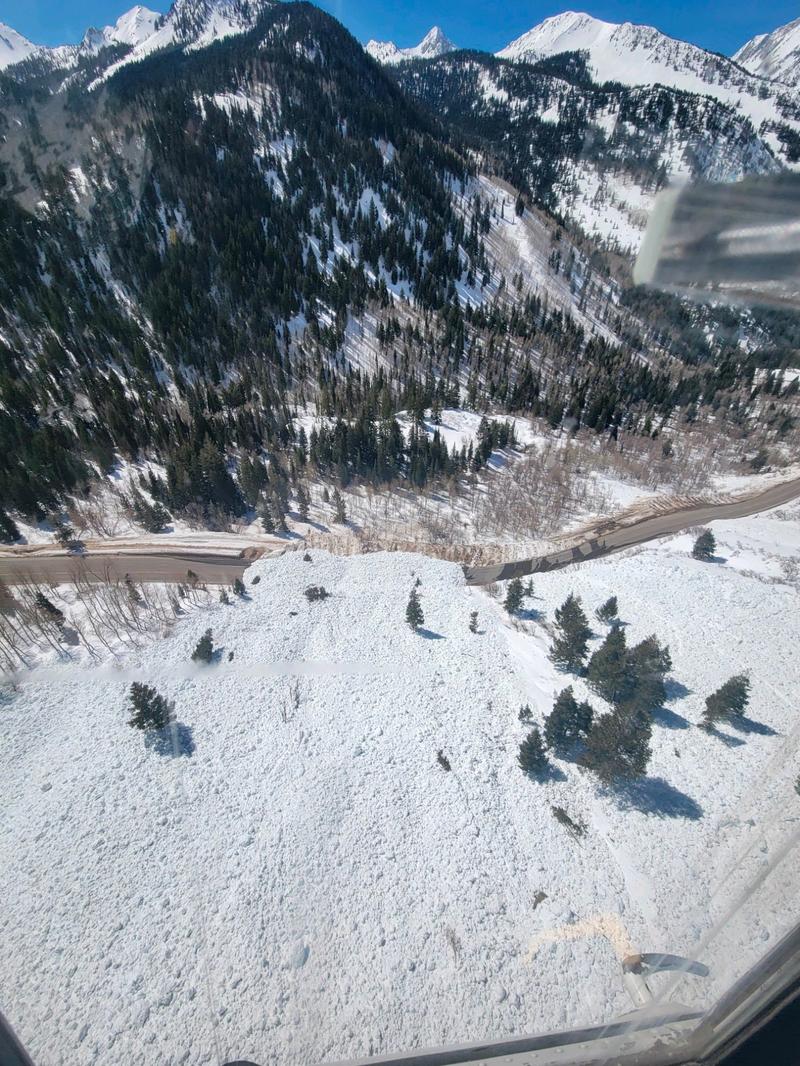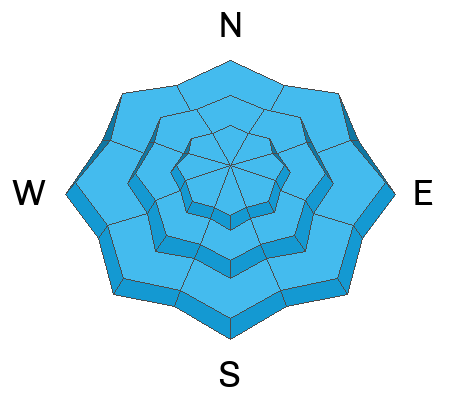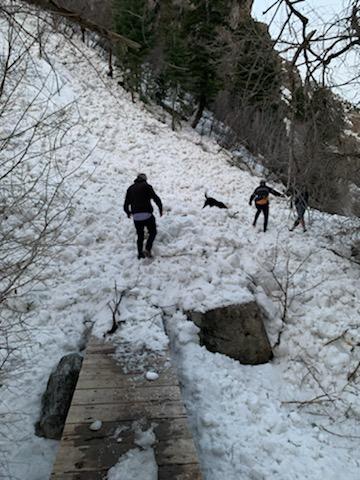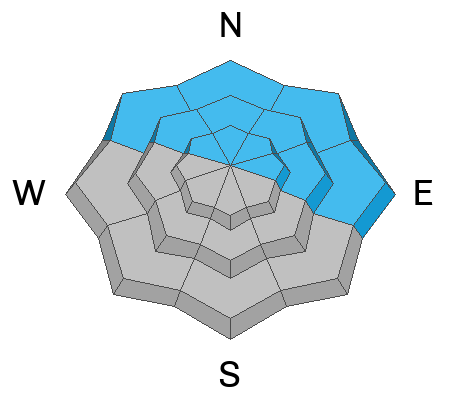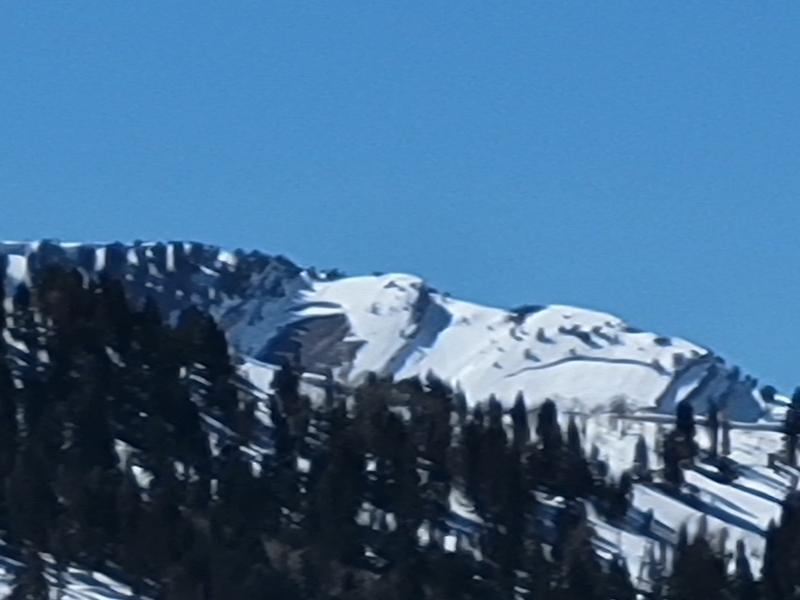Forecast for the Ogden Area Mountains

Issued by Drew Hardesty on
Wednesday morning, April 12, 2023
Wednesday morning, April 12, 2023
A HIGH avalanche danger exists on all aspects and elevations. These are dangerous conditions.
Naturally occurring wet loose, wet slab, and glide avalanches are expected again today. Avalanches will run long distances - even areas where there is currently little to no snow, such as trailheads or onto spring hiking trails. Avoid being on or beneath steep terrain.
Cornices and roof-alanches present a real danger today as well.
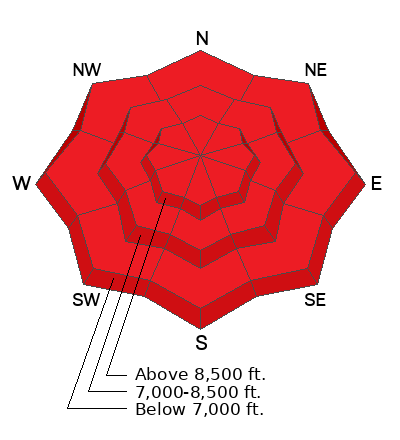
Low
Moderate
Considerable
High
Extreme
Learn how to read the forecast here


